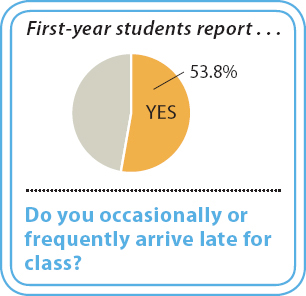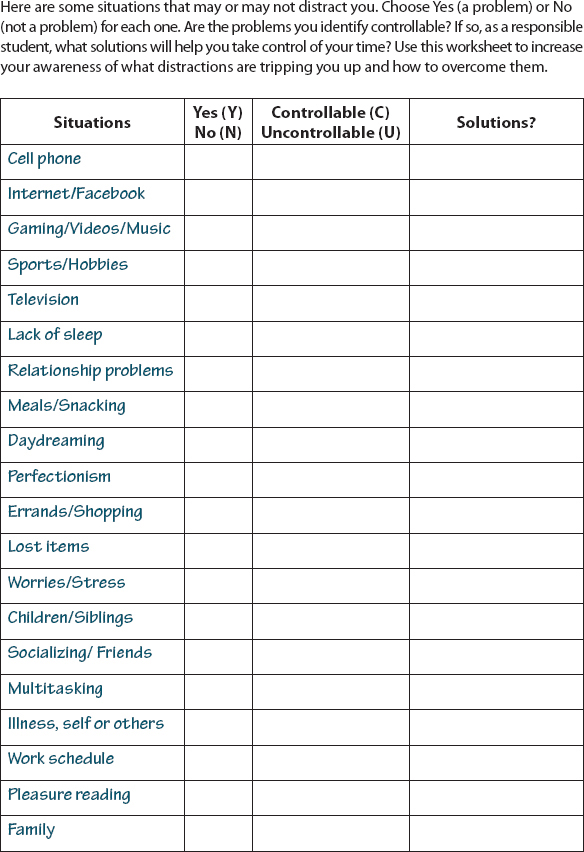Distractions

For many students, distractions are used as a way to procrastinate. For others who are actively trying to focus on tasks, distractions are simply part of their lives that hinder their time management, and they need coping strategies to help them focus on tasks at hand.
When considering how to deal with distractions, assess the types of distractions you encounter, the times and places you encounter these distractions, and the activities these distractions affect. For instance, where should you study? Some students find it’s best not to study in places associated with leisure, such as the kitchen table, the living room, or in front of the TV, because these places lend themselves to interruptions and other distractions. Similarly, it might be unwise to study on your bed because you might drift off to sleep when you need to study, or you may learn to associate your bed with studying and not be able to go to sleep when you need to. Instead, find quiet places, both on campus and at home, where you can concentrate and develop a study mind-set each time you sit down to do your work.
Accurately assessing the distractions you will face is especially important if you have significant family obligations at home or plan to take online classes. If you have children at home, assume that they will always want your attention no matter how much others try to help. Online learners may be more tempted by online distractions, such as e-mail or Facebook, because they are already online for their classes. In these instances students tend to struggle with fulfilling their college obligations until they have tried a variety of strategies for minimizing distractions within their studying environment. The chart in Figure 2.2 will help you identify potential distractions and develop strategies to take better control of your time.

Try to stick to a routine as you study. The more firmly you have established a specific time and a quiet place to study, the more effective you will be in keeping up with your schedule. If you have larger blocks of time available on the weekend, for example, take advantage of that time to review or catch up on major projects, such as term papers, that can’t be completed effectively in 50-minute blocks. Break down large tasks and take one thing at a time; you will make more progress toward your ultimate academic goals this way.
